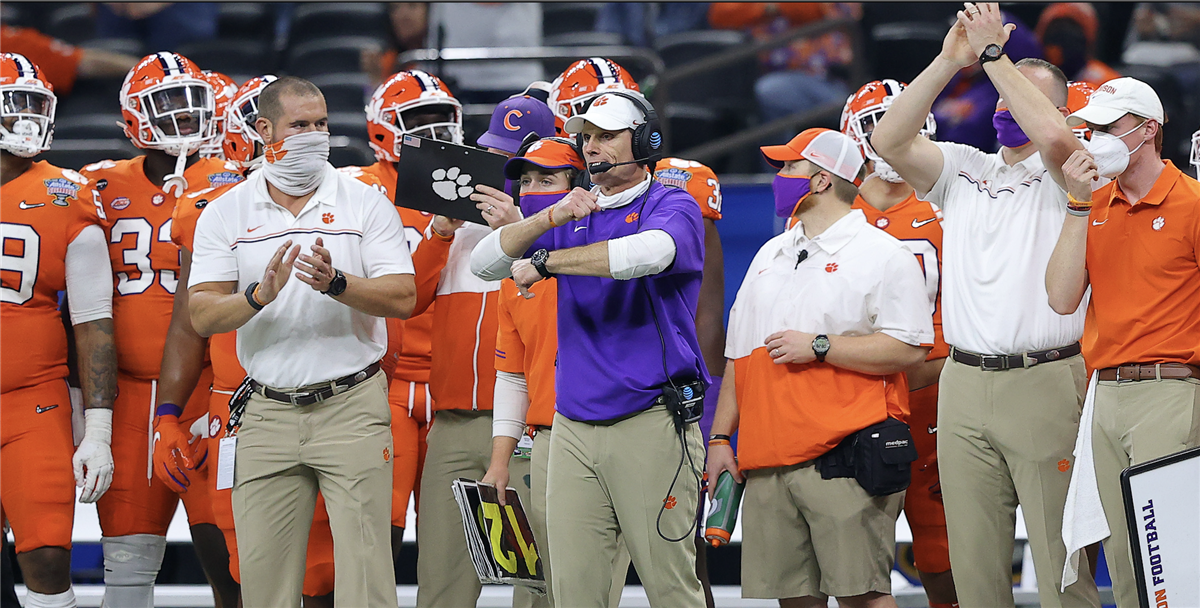Now we know about Stallion
Who is Clemson's Stallion?
Follow the Signs: How Clemson Football Mastered the (Totally Legal) Art of Signal Stealing
Dabo Swinney has built a juggernaut, but his program's secret sauce is not so secret within college football
A month ago, Miami offensive coordinator Rhett Lashlee said the quiet part out loud. He was asked on a Zoom call about Clemson’s reputation for stealing an opponent’s offensive signals that are used to relay play calls from the sidelines, and he met the question head on.
“Clemson is known well for doing it,” Lashlee said.
He went on to both downplay any implication that it was either rare or nefarious—this is no
Houston Astros trash can scandal. "That happens everywhere," Lashlee said. "It's just part of the game. We have to be aware of it, but at the same time, we have to go play. There’s nothing in the rules against stealing signals. Just like in baseball—if you can catch on to a signal that a guy is stealing second, you might as well throw him out.”
Let’s throw this out there: If you ask around college football, you’ll hear that stealing signals can be as much a part of the game as blocking and tackling. It is a commonplace means of trying to gain a pre-snap advantage. But after talking to coaches and staff members at half a dozen teams that have played Clemson in recent years, here are the three responses that follow:
- Knowing laughter.
- An acknowledgement that the Tigers are an elite signal-swiping program.
- “That’s off the record.”
This isn’t the first time the topic has arisen. In its 2017 college football preview magazine,
Athlon Sports quoted an anonymous coach saying, “They’ll steal your signals. … It’s not a very well-kept secret.” A year earlier, head coach Dabo Swinney tacitly acknowledged the hustle in a story in the
Raleigh News & Observer, saying, “You’re in a competition. You’re competing and you want to get every edge that you can. If you have an opponent who’s basically screaming out, ‘Hey, we’re running the ball,’ well, that’s an advantage.”
Nobody is denying it, but no Clemson opponents have been eager to talk publicly about it, either. While signal stealing is a commonly accepted element of the sport that violates no written rules, it does traipse into the sportsmanship gray area—and coaches are loath to talk about opposing teams in that regard. Especially when the opposing team is Clemson, which has the talent to run up scores on just about anyone if it so chooses.
Lashlee was the outlier, willing to call the Tigers what they are—masters of the art of the steal.
